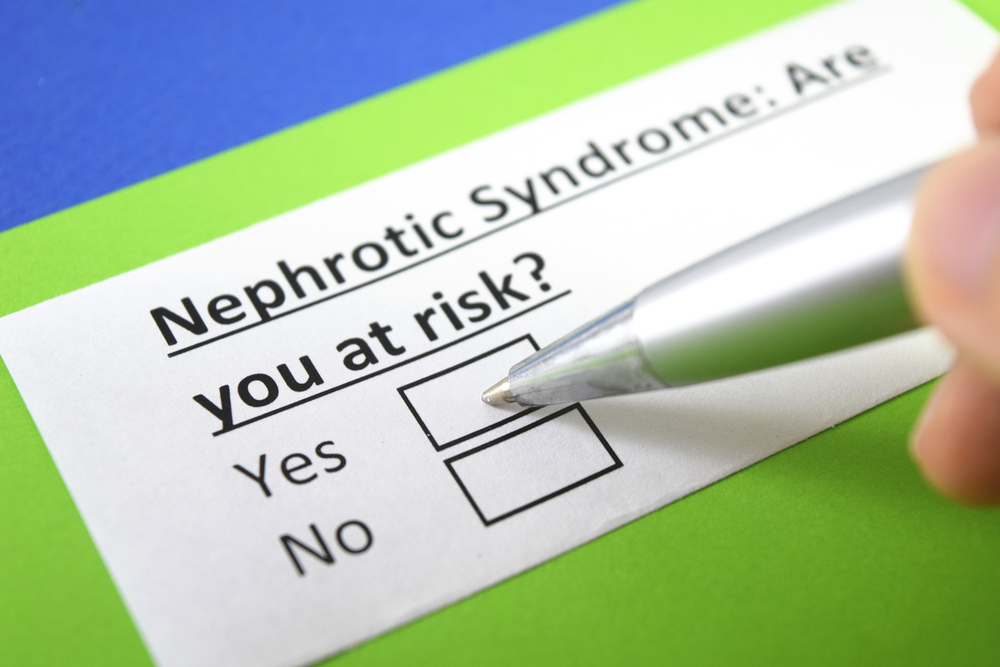Did you experience foamy pee, a general feeling of illness along with swelling of your face? If yes, chances are you’ve developed nephrotic syndrome. It is a kidney disease that occurs when tiny blood vessels of the kidney get damaged and release too much protein in the urine. It can be caused by many conditions and some medications. However, early treatment can prevent severe complications. Learn the causes and risk factors of nephrotic syndrome in this article. If you want to know more about urological health, visit us at Doral Health and Wellness Urology Center and consult with the best nephrologists and urologists in East New York.
Causes and risk factors
This syndrome occurs when the kidneys are damaged due to clusters of tiny blood vessels (glomeruli). These vessels filter blood when it passes through the kidneys and remove things that the body does not need. When these glomeruli are healthy, they absorb blood protein to maintain the right amount of fluid in the body and remove the extra protein into urine. When glomeruli are damaged, they release too much protein causing nephrotic syndrome.
Several disorders can cause nephrotic syndrome:
- Minimal change disease: This is the main cause of nephrotic syndrome in children. It occurs from abnormal kidney function and is only visible when kidney tissue is examined under a microscope. What causes abnormal function is not well understood. However, it may be caused due to viral infections, allergic reactions, certain medications, and using non-steroidal anti-inflammatory drugs (NSAIDs).
- Focal segmental glomerulosclerosis (FSGS): This disease causes scarring of the glomeruli, commonly the main cause of nephrotic syndrome in adults. FSGS can be caused by viruses, medications, genetic mutations, obesity, high blood pressure, vascular disease, and many others.
- Membranous neuropathy: This occurs when membranes of glomeruli thicken. This thickening happens due to deposits made by the immune system, or associated with other medical conditions such as cancer, malaria, hepatitis B, and lupus, or it occurs for no known reason.
- Diabetes kidney disease: This is another popular cause of nephrotic syndrome in adults. It happens due to unmanaged diabetes which damages the kidney function, including glomeruli. This is known as diabetes nephropathy.
- Lupus (systemic lupus erythematosus): It is a chronic disease that causes inflammation due to immune system response and damage to the kidneys.
- Amyloidosis: This happens when amyloid proteins build in your organs and damage the kidney’s filtering system.
Certain health conditions or infections can increase the risk of nephrotic syndrome, including:
- Diabetes
- Lupus
- Amyloidosis
- Hepatitis B and C
- HIV
- Malaria
- In children, untreated strep infection
If you take certain medications like nonsteroidal anti-inflammatory drugs (NSAIDs), then your risk of nephrotic syndrome is high. This disorder is more common in children between the ages of 2 to 6. Males are more often diagnosed with this disorder than females.
Symptoms of nephrotic syndrome
Nephrotic syndrome causes many symptoms; however, some are noticeable, and others only get caught during testing. It includes:
- Too much protein in the urine. It is called proteinuria.
- High fat and cholesterol levels. It is known as hyperlipidemia.
- Swelling in the legs, feet, and ankles, and sometimes even in your hands and face. This is called edema.
- Low levels of albumin in the blood, also known as hypoalbuminemia.
- Appetite loss.
- Feeling unwell or sick.
- Abdominal pain.
- Foamy urine.
Another symptom of nephrotic syndrome is minerals and vitamin loss that are required for health and development. You may develop osteoporosis, which weakens your hair and nails. In children, it affects their growth.
When to see a doctor?
You should see a doctor if:
- You or your child are showing symptoms of nephrotic syndrome including swelling in the face, belly, arms, or legs, foamy urine, abdominal pain, etc.
- You or your child are being treated for nephrotic syndrome, but your symptoms don’t
- New symptoms develop, including cough, decreased urine output, discomfort with urination, and severe headaches.
You should visit an emergency room or call the local emergency number; in case you have seizures.
Nephrotic syndrome occurs when your glomeruli get damaged and release too much protein in your pee. It can cause symptoms like abdomen pain, swelling face, arms, or legs, foamy pee, and a general feeling of illness. If these symptoms last longer than a few days, visit your doctor for diagnosis and treatment.
Need help with nephrotic syndrome, visit our urology clinic in Brooklyn for professional medical treatment. Call us to book your appointment now!!!
At Doral Health and Wellness Urology Center, our team of urologists will work with you in managing your disease and your quality of life. We also offer services, such as renal and bladder ultrasound. To schedule an appointment, please visit us at 1797 Pitkin Avenue, Brooklyn, New York 11212 or call 1-347-384-5690. You can also visit our website at https://www.urologistbrooklyn.com/.






